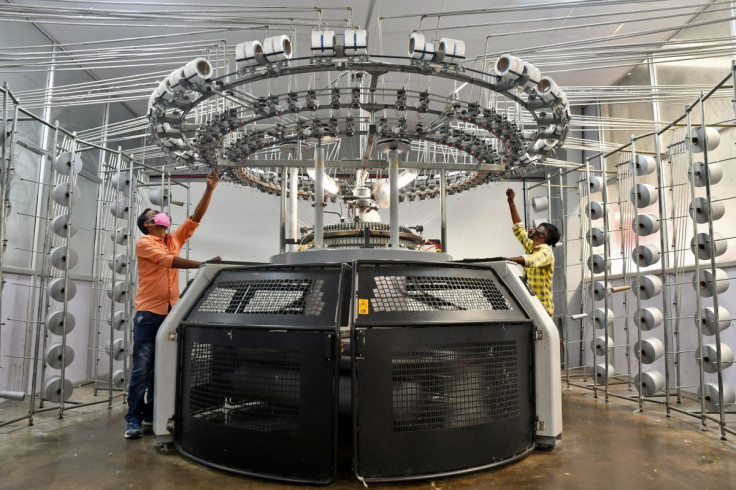Why India Cannot Replace China As The 'Factory Of The World'
With supply-chain inflation out of China contributing to squeezing corporate and family budgets worldwide and escalating high-tech antagonism between Washington and Beijing, India may have a golden opportunity to replace China as the new "factory of the world." It's home to a sizable young labor force and renowned higher education institutions that can provide inexpensive labor to foreign contractors.
But don't count on it. India still needs to be ready to play this role, especially in the semiconductor sector, which is at the center of the U.S. and China trade antagonism.
That's according to Tenpao Lee, professor of economics at Niagara University and editor of the International Journal of Intellectual Property Management.
He thinks India's infrastructure needs to be ready to support the manufacturing needs of foreign companies. And its labor force needs to be well-trained for the semiconductor industries.
Meanwhile, he believes India's large population is a headwind rather than a tailwind for the country's development. "While China is a big country with a success of 30+ years of economic development, China's internal and external economies are formidable," he told International Business Times in an email.
That isn't the case with India. It isn't in a similar situation. And the window of opportunity may close soon.
"China's success story was due to its open policies since 1979," Lee explained. "In the same token, the opportunity was offered to India as China had zero-COVID policies to close its doors with restrictive economic activities. China has paid the price for its zero-COVID policies economically, and China is expected to change its zero-COVID policies soon dramatically."
That's already under the way, which could ease supply chain pressures on overseas contractors.
Moreover, Lee believes that the global economy is in an unprecedented situation, with China and the U.S. competing against each other directly. "India may take some advantages just like they did from the Ukraine war," he added. "However, India cannot easily copy China's story, as both economic and non-economic factors must be in the right place and time. "
Geopolitical analyst Irina Tsukerman is skeptical about this contention. She thinks India's middle class is ready to welcome foreign businesses and investments. "The rise of the middle class in India, too, portends a shift away from China's questionable labor practices, with the costs having risen over time due to economic growth," she told IBT.
Moreover, she sees India becoming a growing and more active member of the digital economy in retail with the adaptation of digital platforms, increased speed of production and $1.2 trillion in a marketing plan. "The digital platform in question is supported by 16 ministries in India and is designed to lure away factories from China," she explained. "But just as important to give a level playing field platform to smaller and medium-sized Indian companies vis-a-vis huge international platforms, including Amazon and Ali Baba."
Still, Ambrose Conroy, the CEO of Seraph Consulting, sees the lack of Western law standards as another barrier to India's prospects of becoming a lead world manufacturer.
Thus, overseas contractors may have to search elsewhere for the next "factory of the world." "It is more likely that Africa, Central America or other Asian countries will emerge as the new center for low-cost manufacturing," he said.

© Copyright IBTimes 2024. All rights reserved.






















